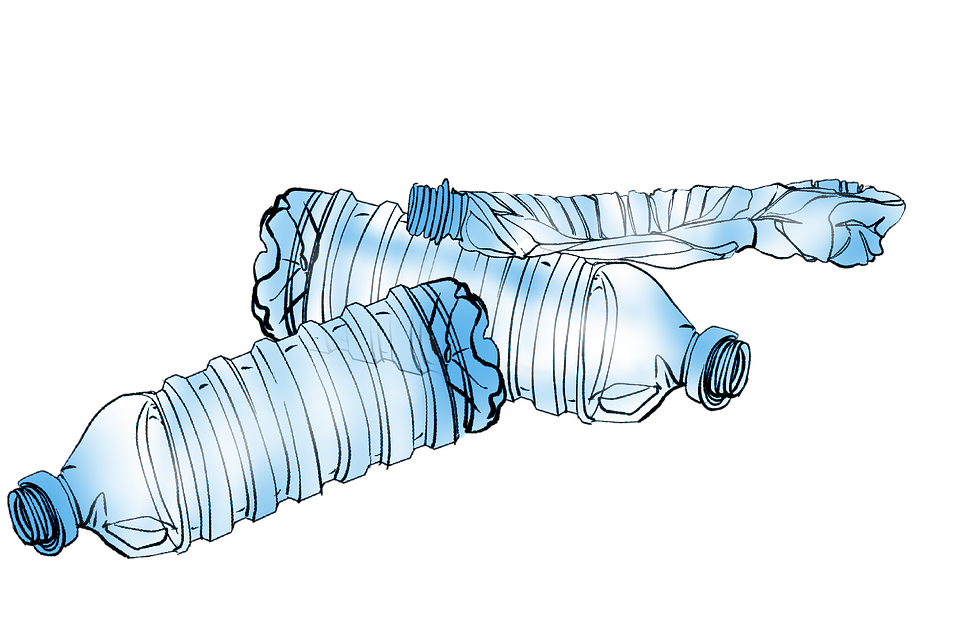The business of unintended consequence is pernicious. The use of fossil fuels is a case in point. Who would have imagined that the invention of the internal combustion engine and the thermal power plant would lead to terrible environmental problems in the future? As we combat climate change we must be careful about problems we are creating even as we try to solve the problems of today.
The creation of plastic has been an inflection point in the development of economies and people on earth. It is a wonder of chemistry and has made many things possible. Not the least of which is packaging for food which has completely altered lifestyles because of the way in which processed food can be consumed. Till very recently plastics were a much sought after solution for many problems.
The world’s first fully synthetic plastic was “Bakelite”, invented in New York in 1907 by Leo Baekeland who coined the term ‘plastics’. One of the key characteristics of plastics is that they are extremely durable. The unintended consequence of this is that every bit of plastic ever made on earth still exists somewhere in some form. Imagine a world filled with tooth brushes. Or an ocean full of plastic bags.
The primary raw materials for plastic are petrochemicals, the processing of which releases billions of tons of carbon into the atmosphere. Since there are many kinds of plastic used for innumerable purposes at very affordable prices, they are very popular and are produced in very large quantities. Take ‘disposable’ plastic water bottles for example. More than 563 billion single use plastic bottles are used in a year around the world. The average carbon footprint of a 500 ml bottle is 82.8 grams according to a Beverage Industry Environmental Roundtable (BIER) report. That means every year, production, transportation and consumption of plastic water bottles produces 46 million tonnes of carbon pollution. As per calculations done by EPA, this is equivalent to the pollution caused by 8.5 million passenger vehicles or the energy used by 42 million homes. We would need a forest that covers almost the entire state of Delhi to sequester the carbon associated with single use plastic bottles.
The plastic bag has made shopping so much easier. Yet it has also become the primary polluter of oceans. The Ellen MacArthur Foundation estimates that by 2050 there will be more plastic bags than fish in the oceans. An estimated 100,000 marine animals die each year from suffocating on or ingesting bags, according to Ocean crusaders report. Just the other day there was a report in the newspapers about a dead sperm whale which had 29 kilograms of plastic in its stomach, a problem that is encountered amongst cattle on land as well. What a dystopian future we are creating for ourselves!
Dying marine animals are not the biggest of the problems that plastics cause in the oceans. Oceans have sequestered almost 40% of the carbon emitted on earth in the past 200 years. This has been possible because of the phytoplanktons that exist in them. Plastics in the oceans reduce the population of phytoplanktons and this severely hampers the ability of the oceans to sequester carbon leading to quicker accumulation of carbon in the atmosphere and a faster pace of global warming. This is worse that killing fish, it’s like killing the oceans themselves.
The next time you throw away a plastic bag remember that there is no “away” when it comes to plastic. Just as we need to discover a way of life without internal combustion engine powered cars and coal powered energy, we also need to find a way of life without plastic if we are to win the fight against climate change. Only, a life without plastic is much more difficult to imagine. There are some applications where plastic is irreplaceable, the transition will be slower there but let us do what we can, as soon as we can, because every additional unit of plastic produced is an additional source of trouble. Join the crusade and help the world move towards becoming a plastic-free planet.
 Anirban Ghosh is the Chief Sustainability Officer at the Mahindra Group. He has been working with Group in Sales, Marketing, and Strategy since 1999 and has been recognised as a distinguished CSO in his current role. A gold medal-winning engineer from Jadavpur University, Calcutta, Ghosh has pursued doctoral studies in Marketing Management at IIM Ahmedabad. He enjoys music, reading, travelling, driving, cricket and tennis. He is an active public speaker and has represented the nation at the Festival of India across multiple nations.
Anirban Ghosh is the Chief Sustainability Officer at the Mahindra Group. He has been working with Group in Sales, Marketing, and Strategy since 1999 and has been recognised as a distinguished CSO in his current role. A gold medal-winning engineer from Jadavpur University, Calcutta, Ghosh has pursued doctoral studies in Marketing Management at IIM Ahmedabad. He enjoys music, reading, travelling, driving, cricket and tennis. He is an active public speaker and has represented the nation at the Festival of India across multiple nations.
Views of the author are personal and do not necessarily represent the website’s views.
Thank you for reading the story until the very end. We appreciate the time you have given us. In addition, your thoughts and inputs will genuinely make a difference to us. Please do drop in a line and help us do better.
Regards,
The CSR Journal Team


